Consoles of the '80s
Nintendo survives an industry crash and emerges as console king in day two of our historic coverage
Contributors: Shane PattersonandBrett Elston
As the decade turned, the popularity of videogame consoles waned in the face of an oversaturated marketplace. Coupled with horrible third-party releases, the US gaming industry crashed and led to the bankruptcy of many electronics companies. As home computers (PCs) took off, a brave few stepped through the fire and ashes and breathed life into an industry at death's door. Join us as we pay tribute to the consoles that saved our hobby.
Consoles of the '70s| Consoles of the '80s
Consoles of the '90s|Consoles of the 2000s

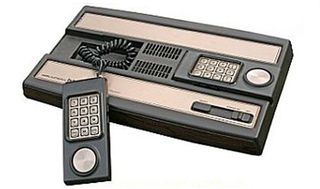
Console: Intellivision
Manufacturer: Mattel Electronics
Discontinued: 1991
Known as the first console to pose a serious threat to Atari’s 2600, the Intellivision sold 175,000 consoles in its first year and started a TV smear campaign against its rival. Interestingly, Mattel rolled out a voice synthesis peripheral in 1982 called the Intellivoice, which made speech integral to gameplay. Intellivision was also known as the first 16-bit console, even though you’d never recognize it as such.
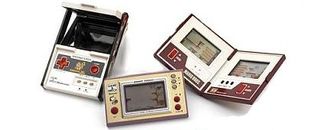
Console: Game & Watch - Japan
Manufacturer: Nintendo
Discontinued: 1991
These LCD electronic games came in different models- all of which have resembled an iteration of the Game Boy or DS at one point. The Game & Watch pioneered left-handed directional control with the d-pad, seen on every console and handheld in the modern age. Designed by Gunpei Yokoi, who’d later create the GameBoy.

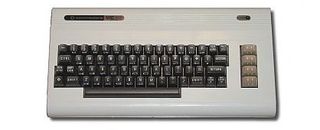
Console: VIC-20
Manufacturer: Commodore
Discontinued: 1985
As the first microcomputer to sell a million units, the VIC-20 was designed to be way more economical than the PET - a PC Commodore released three years prior. The VIC-20 played games on cartridge and tape and wasthe first computer to be sold at a K-Mart. Hell, William Shatner was eventhe spokesman at one point. The VIC-20 also held the distinction of introducing many software developers to basic programming skills.
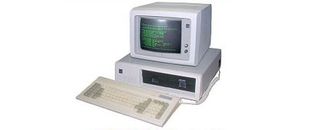
Console: IBM PC (model 5150)
Manufacturer: IBM
Discontinued: 1987
Even though the IBM PC appeared in 1975, the price was deemed way too high to compete with cheaper alternatives. The newest model was the first computer to be legally reverse engineered by other manufacturers to create PC or IBM clones - hence that old term “IBM compatible.” Yeah, rivals were able steal the BIOS through backdoor shenanigans.
Sign up to the 12DOVE Newsletter
Weekly digests, tales from the communities you love, and more
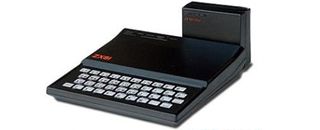
Console: Sinclair ZX81 - UK
Manufacturer: Sinclair
Discontinued: 1983
An upgrade to the ZX80, the newer Sinclair model used ordinary audio cassettes for saving and loading programs. This model was known for various oddities, including no sound capability and strangely giving the square root of .25 as 1.359. Sinclair eventually replaced this model with the more popular Spectrum.
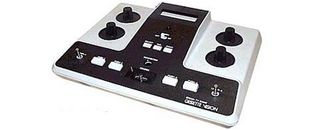
Console: Cassette Vision - Japan
Manufacturer: Epoch
Discontinued: 1984
Ignore the console name, because this thing played cartridges. And did you know the CV was the first ever programmable console to be made in Japan? The graphics were a little iffy for its time (following the Atari 2600) and controls were located directly on the console (two knobs per player!). Not incredibly successful, but did manage to spawn two spinoff consoles.
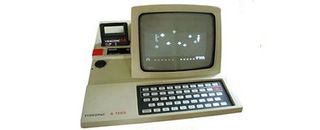
Console: Philips Videopac G7200 - UK
Manufacturer: Philips
Discontinued: Mid 80s
Because Philips was the parent company to Magnavox, Philips released the Odyssey 2 in foreign countries under its own name. This console is the exact same as the O2, except it came with a built-in B&W monitor. Fancy and rare.

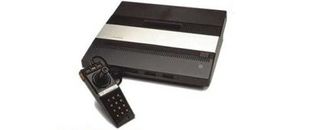
Console: Atari 5200 Super System
Manufacturer: Atari
Discontinued: 1984
Created as a powerful successor to the 2600, the 5200 competed with the Intellivision and ColecoVision once it hit the market. Unfortunately, Atari spent more attention on the oversaturated (and far more popular) 2600 rather than their new console. Also, Atari underestimated the value of backwards compatibility - at least until they released an adapter the following year. Generally considered a failure, the newer controller also featured a pause buttonwhich has since beenseen everywhere in the world of gaming.
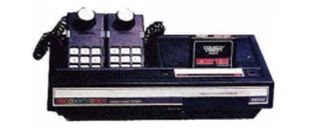
Console: Coleco ColecoVision
Manufacturer: Coleco Coleco
Discontinued: 1984
Was this a Pong system? Hell no, Coleco came packaged with arcade-hit Donkey Kong, which certainly helped boost its popularity. The ColecoVision was powerful enough to display arcade-quality graphics and even contained the ability to play Atari 2600 games - a nice jab indeed. The detachable controllers included a keypad, smaller buttons and a tiny joystick. Even including the crash of ’83, the CV sold around six million units.
12DOVE was first founded in 1999, and since then has been dedicated to delivering video game-related news, reviews, previews, features, and more. Since late 2014, the website has been the online home of Total Film, SFX, Edge, and PLAY magazines, with comics site Newsarama joining the fold in 2020. Our aim as the global GamesRadar Staff team is to take you closer to the games, movies, TV shows, and comics that you love. We want to upgrade your downtime, and help you make the most of your time, money, and skills. We always aim to entertain, inform, and inspire through our mix of content - which includes news, reviews, features, tips, buying guides, and videos.
21 years after Doom 3, Doom: The Dark Ages is trying to make good on the controversial sprint option: "You're going to feel like a silverback on a hoverboard with a giant sledgehammer"

Doom: The Dark Ages will release simultaneously for PS5 and Xbox Series X when it lands in May, because the director told Phil Spencer he "wanted to sell it on all platforms"